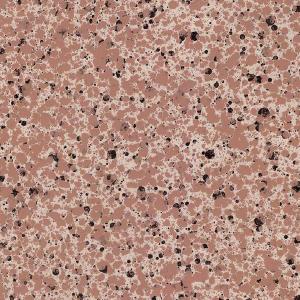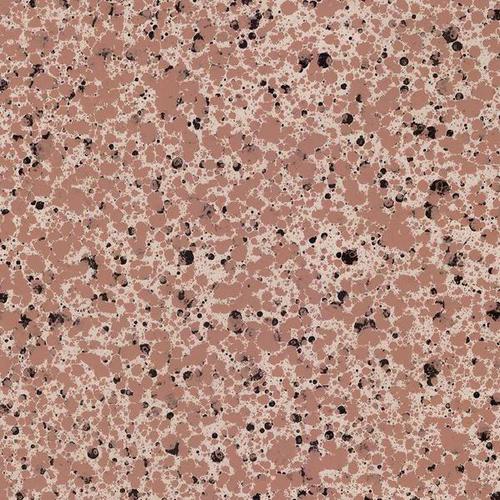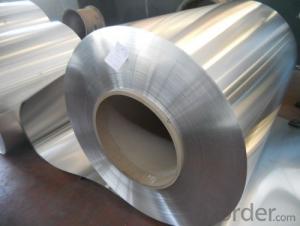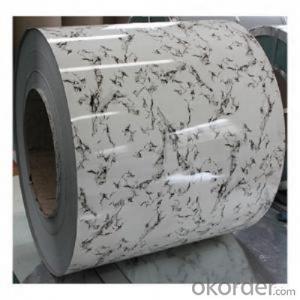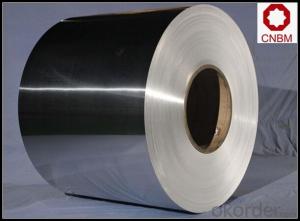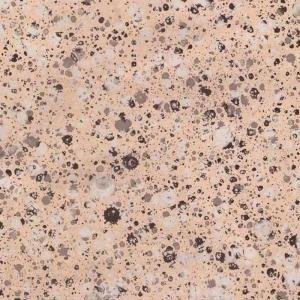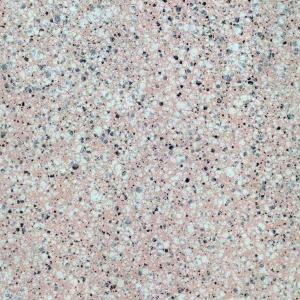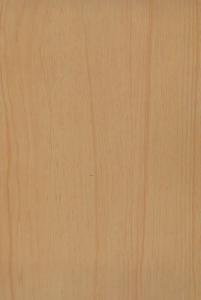Marble Grain Aluminum Alloy Coil
OKorder Service Pledge
OKorder Financial Service
You Might Also Like
Aluminium coated sheetand coil choose aluminium sheet coil as raw material, after de-ester, cleaning,passivation layer processing, and then painting on this basis, the paint areprovided by famous international companies like PPG and Valspar from UnitedStates or Becker from Sweden, represent the most advanced level in the world.After the test of exposure by natural light in Florida, the quality assurance is more than morethan 20 years. As poor performance of color coated steel corrosion, rust,yellow rust after a large amount of the deficiency of serious impact on thebuilding's overall appearance. However, because of the advantages of rawmaterials, Aluminium coated coil have a high strength, corrosion resistance,high weather resistance, can be used recycle, save energy and protect theenvironment and other characteristics. Not only have the same strength with colorcoated steel, but also overcome the shortage of color coated steel. So, the Aluminiumcoated coil has been widely used as roofing and ceiling decorative envelopesystem board in modern constructions like large factories, exhibition halls,stadiums, airports, train station hospital and so on. We can choose Aluminiumcoated coil in different thickness and color, by cutting, pressing, punching,bending and other follow-up molding process for large span, the larger theoverall roofing, wall decorative panels used in construction; or cut them intosmall panels by bending, stamping mold or other processing for indoordecorative roofing plate; we can also composite them with polyurethane foam oraluminium honeycomb for energy-saving decorative wall plates.
Alloy | 1050,1060,1100,3003,3004,3005,3104,3105,5052,5005,8011 |
Temper | O,H42,H44,H46,H48 |
Thickness (mm) | 0.25mm-1.5mm for aluminium coated coil; 1.50mm-4.0mm for aluminium coated sheet. |
Width (mm) | 100mm to 2000mm |
Length (mm) | 800mm to 6000mm for sheet |
- Q: What are the potential applications of embossed aluminum coils?
- The unique properties and versatility of embossed aluminum coils make them suitable for a wide range of potential applications. These coils can be used in various industries, including architecture, packaging, heat transfer, automotive, electrical, and furniture. In architecture, embossed aluminum coils are commonly utilized for decorative purposes in both interior and exterior design applications. They can enhance the aesthetic appeal of spaces by being used for wall cladding, ceiling panels, decorative facades, and other decorative elements. The embossed patterns on the coils provide visually appealing texture and depth to surfaces. The packaging industry also heavily relies on embossed aluminum coils. These coils are often employed in the manufacturing of packaging materials, such as cans, boxes, lids, and closures. The embossed patterns on the coils not only enhance the visual appeal of the packaging but also provide additional strength and rigidity, making it more durable and resistant to damage. Heat transfer applications also benefit from embossed aluminum coils. These coils are utilized in heat exchangers, evaporators, condensers, and other heat transfer equipment. The embossed patterns on the coils create turbulence in fluid flow, increasing the efficiency of heat transfer. In the automotive industry, embossed aluminum coils find applications in the manufacturing of car body panels, trims, and decorative elements. The embossed patterns on the coils can give vehicles a unique and stylish appearance, setting them apart from others. The electrical industry also utilizes embossed aluminum coils for various applications. These coils are used in the manufacturing of electrical enclosures, switchboards, and control panels. The embossed patterns on the coils enhance the structural integrity and provide better protection against external factors, such as moisture, dust, and corrosion. Lastly, the furniture industry makes use of embossed aluminum coils. These coils are employed in the manufacturing of furniture components, such as table tops, cabinet doors, and decorative trims. The embossed patterns on the coils add a touch of elegance and sophistication to the furniture, making it visually appealing. Overall, embossed aluminum coils have a wide range of potential applications due to their unique properties and versatility. They are favored in industries where aesthetics, strength, and durability are crucial factors.
- Q: I know aluminum has gone up in price. I know very little about gutter material. Durability, leaf guards, etc. I am on a limited income, and need the most and best for my few bucks. Thanks Lee
- aluminum is the best for you. plastic is junk
- Q: How are aluminum coils used in heating, ventilation, and air conditioning (HVAC) systems?
- Aluminum coils are commonly used in HVAC systems as they serve as heat exchangers. These coils are responsible for transferring heat between the indoor and outdoor units of an HVAC system. The aluminum coils are designed to efficiently absorb heat from the indoor air and release it outside, or vice versa, depending on whether the system is in cooling or heating mode. The use of aluminum coils in HVAC systems ensures better heat transfer, corrosion resistance, and overall system performance.
- Q: How are aluminum coils coated to enhance their durability?
- Aluminum coils are coated using various methods to enhance their durability. One common method is the application of a protective coating, such as a polyester or acrylic resin, through a process called coil coating. This involves applying the coating to the surface of the aluminum coil using techniques like roll coating or spray coating. The coating acts as a barrier between the aluminum and external factors like moisture, UV rays, chemicals, and abrasion. It helps prevent corrosion, oxidation, and damage caused by environmental exposure. The type of coating and its thickness can vary depending on the desired level of durability and the intended application of the aluminum coil. In addition to protective coatings, aluminum coils can also undergo other treatments to further enhance their durability. These treatments may include pre-treatment processes like cleaning, etching, and chromating, which improve the adhesion of the coating to the aluminum surface. Other treatments may involve applying primers or topcoats to provide additional protection and improve the appearance of the coil. Overall, the process of coating aluminum coils enhances their durability by providing a protective layer that withstands harsh environmental conditions, extends their lifespan, and maintains their aesthetic appeal.
- Q: On Square-D service panels, are the main lugs rated for aluminum wire? Or do I need to use an anti-oxidant compound? What about on Milbank outdoor meter bases?
- No you do not have to use any type compound on it.
- Q: Are there any limitations to the maximum coil length of aluminum coils?
- The maximum length of aluminum coils is subject to certain limitations. Factors that affect the maximum coil length include the thickness and width of the coil, the strength and tensile properties of the aluminum alloy, the equipment used for coil processing, and the intended application of the coil. One limitation is the strength and ductility of the aluminum alloy. Aluminum alloys with higher strength and lower ductility may have restrictions on the maximum coil length due to the risk of coil breakage or deformation during processing or handling. Another limitation is the coil processing equipment. The maximum coil length is often determined by the size and capabilities of the equipment used for slitting, cutting, or forming the coils. If the equipment has limited capacity or is not designed for longer coils, it may not be able to effectively handle or process longer lengths. The intended application of the coil can also impose limitations. For example, in the automotive industry, there may be restrictions on the maximum coil length based on the size and weight limitations of the vehicles. Moreover, logistical factors such as transportation and storage can also impose limitations. Longer coils may be more challenging to handle, transport, and store, which can increase the risk of damage or pose challenges in terms of logistics and space requirements. Therefore, it is crucial to consider various factors such as alloy properties, equipment capabilities, application requirements, and logistical considerations to determine the practical limitations of coil length for a specific situation, as there is no specific universal limit to the maximum coil length of aluminum coils.
- Q: Are aluminum coils susceptible to warping or bending?
- Yes, aluminum coils are susceptible to warping or bending due to their relatively low strength and flexibility.
- Q: I'm asking about the aluminum tabs on soda cans. I've heard mixed things.
- Depends what you mean by site. A full service junkyard will pay by the pound for most kinds of metal, including washers dryers and stoves but you would need a lot of them to make it worthwhile at 60 cents a pound or so
- Q: i want to save some money on my electricity bill, and i heard that aluminum foil rejects the heat that goes through the windows, also does it work with the cold?
- If this is a house then it is your determination, if this is an condominium then you will greater advantageous verify with the administrative. maximum construction do no longer decide for aluminum foil on the residing house windows because it degrades the appearance of the residing house/condominium.
- Q: What are the different types of edge conditions for aluminum coils?
- Aluminum coils come in various edge conditions, each with its own purpose and function. These edge conditions are designed to protect, improve functionality, and ensure compatibility with different manufacturing processes. Firstly, there is the mill edge, which is the standard edge condition produced during the initial rolling process. It is characterized by a smooth, straight, and burr-free edge. Mill edge coils are versatile and can be easily processed further. Next, there is the slit edge, which is created by cutting mill edge coils into narrower widths. This process results in a slightly rougher edge compared to mill edge coils. Slit edge coils are commonly used when precise width tolerances are required. Another edge condition is the trimmed edge. Trimmed edge coils undergo additional processing to remove any irregularities or defects along the edges. This is achieved through shearing or trimming the coil. Trimmed edge coils are often used in applications that demand a high level of aesthetics or a uniform appearance. Deburred edge coils have sharp edges or burrs removed through mechanical or chemical methods. This ensures a smooth and safe edge, making them suitable for applications where safety is a concern. Rounded edge coils have their edges rounded or softened to minimize the risk of injury during handling or installation. This is achieved through methods like roll forming or edge rolling. Rounded edge coils are commonly used in industries where safety is crucial. Lastly, there are specialty edge conditions designed for specific applications. These include edge conditions tailored for processes like welding, bending, or forming. Specialty edge conditions cater to the unique requirements of certain industries or applications. When selecting an edge condition for aluminum coils, it is important to consider factors such as aesthetics, functionality, safety, and manufacturing processes. By doing so, the most suitable edge condition can be chosen to meet the specific requirements of the application.
Send your message to us
Marble Grain Aluminum Alloy Coil
OKorder Service Pledge
OKorder Financial Service
Similar products
Hot products
Hot Searches
Related keywords
